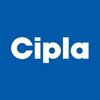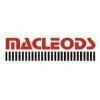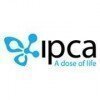Filter interviews by
Pfizer Interview Questions and Answers
27 Interview questions
Experienced operations leader with a proven track record in team management, process optimization, and strategic planning.
Over 8 years of experience in operations management, leading teams of up to 20 members.
Successfully implemented a new inventory management system that reduced costs by 15%.
Skilled in data analysis and reporting, using tools like Excel and Tableau to drive decision-making.
Strong communicator, fa...
I would plan the region wise budget by analyzing past sales data, setting clear goals, considering market trends, and collaborating with regional teams.
Analyze past sales data to understand performance in each region
Set clear and achievable sales goals for each region
Consider market trends and competition in each region
Collaborate with regional sales teams to gather insights and input
Allocate budget based on poten...
HPLC is used for separating compounds in liquid phase, while GC is used for separating compounds in gas phase.
HPLC stands for High Performance Liquid Chromatography, while GC stands for Gas Chromatography.
HPLC is used for analyzing compounds that are heat-sensitive or non-volatile, while GC is used for volatile compounds.
HPLC typically uses a liquid mobile phase and a solid stationary phase, while GC uses a gas mo...
Organic reaction mechanisms involve step-by-step processes by which organic molecules undergo chemical transformations.
Nucleophilic substitution: involves the attack of a nucleophile on an electrophilic carbon atom, leading to the substitution of one group with another.
Electrophilic addition: occurs when an electrophile reacts with a nucleophile to form a new bond, typically seen in alkene reactions.
Elimination: i...
NMR spectroscopy is suitable for organic reactions due to its ability to provide detailed structural information.
NMR spectroscopy is commonly used to analyze organic compounds and reactions.
It can provide information on the connectivity of atoms, functional groups, and stereochemistry.
Examples of NMR techniques include 1H-NMR and 13C-NMR.
NMR spectroscopy is non-destructive and can be used to monitor reactions in r...
The IR value for carbonyl compounds is typically around 1700-1750 cm^-1, while other functional groups have characteristic IR values.
Carbonyl compounds typically show a strong absorption band around 1700-1750 cm^-1 in the IR spectrum.
Alcohols usually have a broad peak around 3200-3600 cm^-1 due to O-H stretching.
Amines exhibit N-H stretching vibrations around 3300-3500 cm^-1.
Alkenes show C=C stretching vibrations ...
Handling problems during a batch requires quick thinking, effective communication, and problem-solving skills.
Stay calm and assess the situation
Communicate with team members to identify the root cause
Implement a solution quickly to minimize impact on the batch
Document the issue and solution for future reference
Follow up to ensure the problem is resolved and prevent future occurrences
Conflict resolution in day to day tasks
Active listening and effective communication are key in resolving conflicts
Identify the root cause of the conflict and address it directly
Collaborate with all parties involved to find a mutually beneficial solution
Maintain professionalism and remain calm during conflict resolution
Document the conflict resolution process for future reference
I would approach the problem by breaking it down into smaller parts and analyzing each part individually.
Identify the root cause of the problem
Brainstorm possible solutions
Evaluate each solution and choose the most effective one
Implement the chosen solution
Monitor the solution to ensure it is working as intended
Hydraulic power is used to generate electricity by harnessing the energy of falling water.
Water is stored in a reservoir and released through a dam to turn a turbine.
The turbine is connected to a generator which converts the mechanical energy into electrical energy.
The electricity is then transmitted through power lines to homes and businesses.
Hydroelectric power is a renewable energy source that produces no green...
Pfizer Interview Experiences
77 interviews found
I appeared for an interview in May 2025, where I was asked the following questions.
- Q1. "How does the pharmaceutical industry balance the pressure of fast product delivery with strict quality and regulatory compliance, especially in high-demand situations like pandemics or drug shortages?"
- Q2. "With increasing automation and digitalization in QC labs, what role will freshers play in the future of pharmaceutical quality control, and how can we stay relevant?"
- Q3. "What key qualities do you expect from a fresher to perform well and adapt quickly in the production environment?"
- Ans.
Key qualities for freshers in production include adaptability, teamwork, attention to detail, and a willingness to learn.
Adaptability: Ability to quickly adjust to new processes and technologies, such as learning new machinery.
Teamwork: Collaborating effectively with colleagues, like participating in team meetings to improve workflow.
Attention to Detail: Ensuring quality standards are met, for example, double-checking ...
- Q4. "Why most of the pharmaceutical company don't take the freshers and b.pharmacy'? B.pharmacy learn about both side
- Q5. "How do you balance the pressure to reduce drug prices for patient affordability with the high costs of research, development, and regulatory compliance—without compromising on product quality and innovati...
Interview Preparation Tips
I appeared for an interview in Feb 2025.
(2 Questions)
- Q1. Question on Digital Audit SOD AUDIT GXP PROCESS. itgc itac
- Q2. Itac and itgc question.
I appeared for an interview in Mar 2025, where I was asked the following questions.
- Q1. Sap T code
- Q2. What are your experiences with customer handling? I have 12 years Customer handling
- Q3. Logistics department
- Q4. Logistics department handling to deliver time to time with customer satisfaction.
- Q5. MIS Data handling and reporting
Interview Preparation Tips
(2 Questions)
- Q1. Area qualifications
- Q2. Equipment validation
(2 Questions)
- Q1. Manufacturing process
- Q2. Trouble shooting
I applied via Recruitment Consulltant and was interviewed in Jun 2024. There was 1 interview round.
(2 Questions)
- Q1. How many data science projects,
- Ans.
I have led and been involved in over 10 data science projects in various industries.
Led and managed over 10 data science projects from inception to completion
Collaborated with cross-functional teams to deliver impactful solutions
Utilized advanced analytics and machine learning techniques to drive business insights
Examples: Predictive maintenance for manufacturing, customer segmentation for retail
- Q2. What is confusion matrix, roc, auc
- Ans.
Confusion matrix is a table used to describe the performance of a classification model. ROC curve is a graphical representation of the true positive rate against the false positive rate. AUC is the area under the ROC curve.
Confusion matrix is a 2x2 table that shows the true positive, true negative, false positive, and false negative values of a classification model.
ROC curve is a plot of the true positive rate (sensiti...
Interview Preparation Tips
Skills evaluated in this interview
I applied via Referral and was interviewed in Jul 2024. There was 1 interview round.
(2 Questions)
- Q1. Previous company performance and achievements
- Ans.
Increased company revenue by 20% through strategic partnerships and improved operational efficiency.
Implemented cost-saving measures resulting in a 15% reduction in expenses
Led a successful marketing campaign that increased customer base by 30%
Introduced new technology that improved patient care and satisfaction
Received industry recognition for excellence in healthcare management
- Q2. Elaborate the success previous organisation performance and achievements
Interview Preparation Tips
(2 Questions)
- Q1. Self introduction
- Ans.
Experienced operations leader with a proven track record in team management, process optimization, and strategic planning.
Over 8 years of experience in operations management, leading teams of up to 20 members.
Successfully implemented a new inventory management system that reduced costs by 15%.
Skilled in data analysis and reporting, using tools like Excel and Tableau to drive decision-making.
Strong communicator, facilit...
- Q2. Production team handling
(2 Questions)
- Q1. Ml algos description
- Ans.
Machine learning algorithms are mathematical models used to analyze data and make predictions.
ML algorithms learn from data to make predictions or decisions
They can be supervised, unsupervised, or semi-supervised
Examples include linear regression, decision trees, support vector machines
- Q2. Clustering techniques
Skills evaluated in this interview
I appeared for an interview in Oct 2024, where I was asked the following questions.
- Q1. Introduce yourself
- Q2. Explain about pfizer brands(differ as per division) and their MOA .
- Q3. Explain Antibiotics with classification
- Q4. What are your views on Antifungals
- Q5. Why do You want to Join pfizer
- Q6. Tell us about Hospital working
I applied via Company Website and was interviewed in Jul 2024. There was 1 interview round.
Core values, Experience, Behavorial
Top trending discussions






Pfizer Interview FAQs
The duration of Pfizer interview process can vary, but typically it takes about less than 2 weeks to complete.
Tell us how to improve this page.
Pfizer Interviews By Designations
- Pfizer Health Care Executive Interview Questions
- Pfizer Junior Associate Interview Questions
- Pfizer District Business Manager Interview Questions
- Pfizer Manager Interview Questions
- Pfizer Assistant Manager Interview Questions
- Pfizer Territory Executive Interview Questions
- Pfizer Team Lead Interview Questions
- Pfizer Executive Research Trainee Interview Questions
- Show more
Interview Questions for Popular Designations
- Health Care Executive Interview Questions
- Junior Associate Interview Questions
- Senior Executive Interview Questions
- Executive Interview Questions
- Sales Executive Interview Questions
- Java Developer Interview Questions
- Data Analyst Interview Questions
- Senior Software Engineer Interview Questions
- Show more
Overall Interview Experience Rating
based on 67 interview experiences
Difficulty level
Duration
Interview Questions from Similar Companies
Pfizer Reviews and Ratings
based on 1.9k reviews
Rating in categories
|
Junior Officer
250
salaries
| ₹1.8 L/yr - ₹3.8 L/yr |
|
Territory Executive
232
salaries
| ₹3.2 L/yr - ₹8.3 L/yr |
|
Health Care Executive
176
salaries
| ₹4 L/yr - ₹9 L/yr |
|
Junior Associate
156
salaries
| ₹2 L/yr - ₹3.7 L/yr |
|
Executive
133
salaries
| ₹2.9 L/yr - ₹7.9 L/yr |

Cipla

Dr. Reddy's

Lupin

Zydus Lifesciences
- Home >
- Interviews >
- Pfizer Interview Questions













